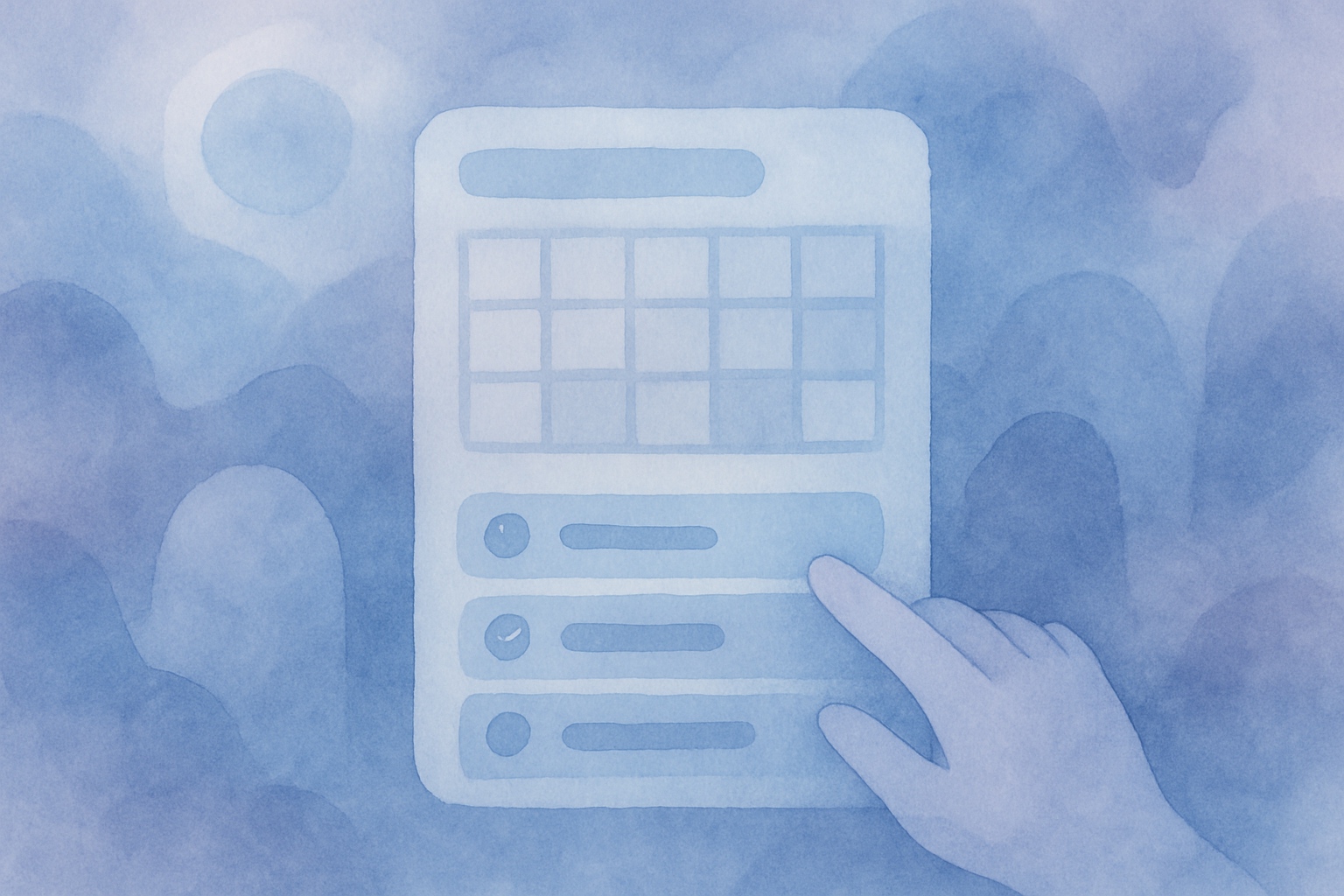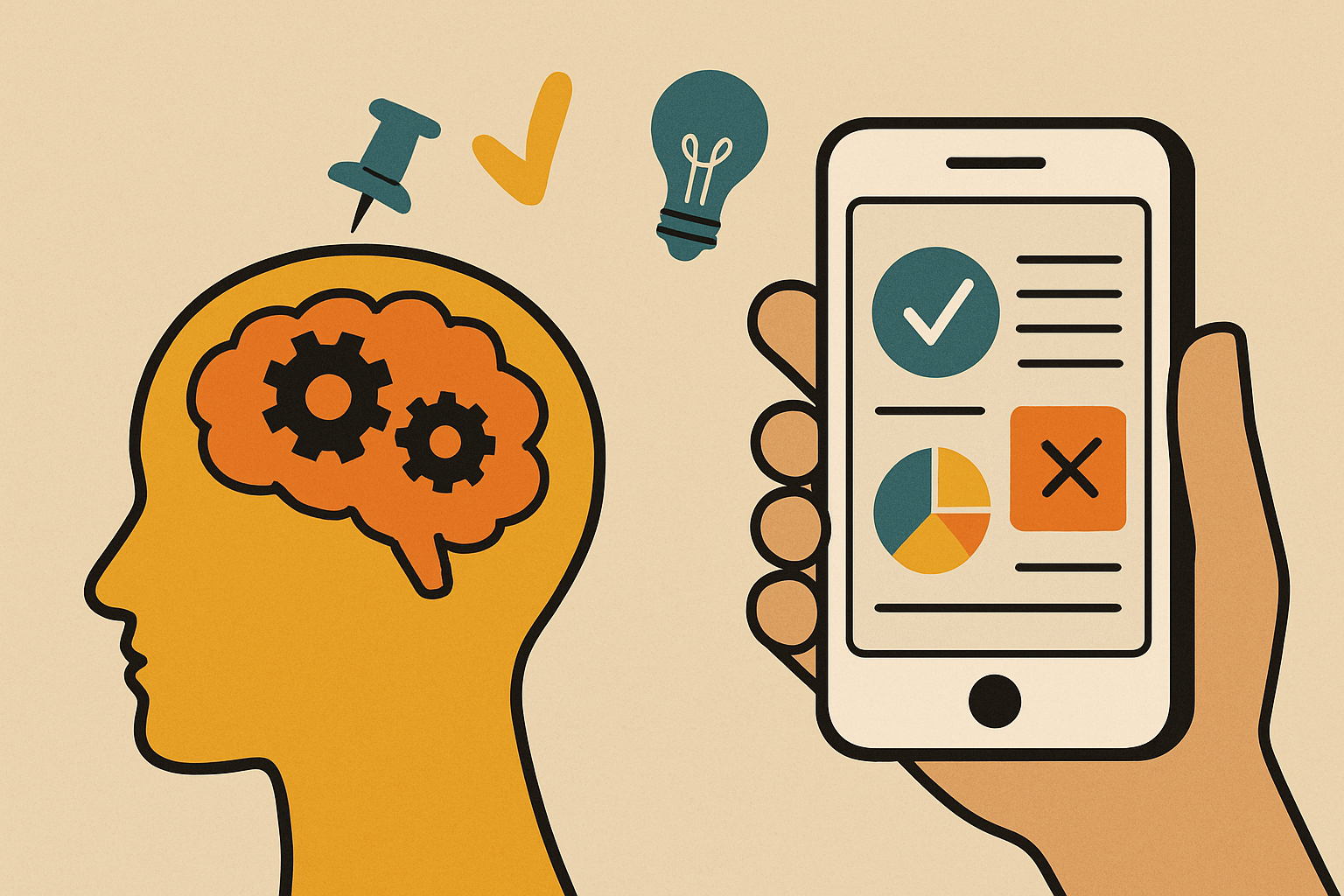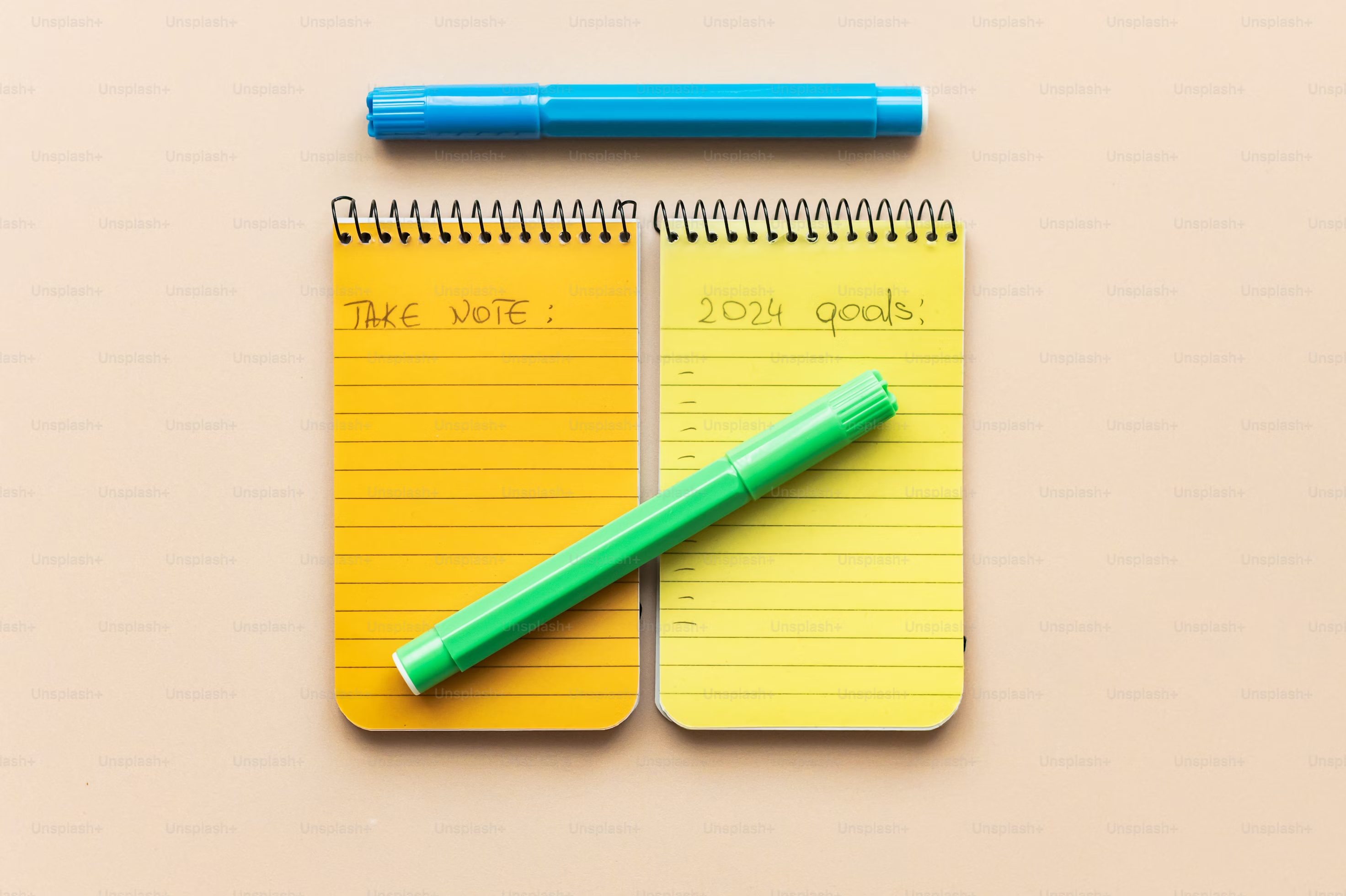Building Unstoppable Habits: Long-Term Strategies to Defeat ADHD Procrastination
Discover proven strategies for building sustainable habits that combat ADHD procrastination. Learn how external scaffolding, smart prioritization, and the right tools can help you create lasting change and achieve calm productivity.

For those with ADHD, the advice to "just be more disciplined" isn't just unhelpful—it's often damaging. The persistent challenge of procrastination isn't a moral failing; it's a neurological reality. In fact, research indicates that adults with ADHD are 2–4 times more likely to procrastinate than their neurotypical peers. This struggle is rooted in executive dysfunction, dopamine regulation, and time blindness—concepts validated by studies in peer-reviewed publications like the Journal of Attention Disorders. Building sustainable, unstoppable habits requires abandoning the fight against your brain and instead adopting a new approach: a powerful blend of psychological strategies supported by the right digital tools.
The concept of a "second brain" is revolutionary for managing ADHD. Learn exactly how to build your effortless second brain with Yaranga in our complete guide.
Understanding Habits Through an ADHD Lens
The gap between wanting to form a habit and doing it consistently can feel like a chasm for individuals with ADHD. This isn't due to a lack of desire but is a direct result of core ADHD traits. Executive dysfunction makes it difficult to plan, prioritize, and initiate tasks. Time blindness turns future deadlines into abstract concepts until they become immediate crises. And the brain's unique dopamine-seeking behavior means that tasks without an immediate, tangible reward are easily pushed aside.
This cycle is often amplified by powerful emotional factors like a fear of failure, perfectionism, and the "toxic shame" that stems from past episodes of procrastination. These emotional barriers can create a self-reinforcing loop of avoidance, which is why willpower alone is an unreliable strategy.
For people with executive dysfunction we require special needs, especially with outsourcing tasks so we don't worry about them over and over again.
To break the cycle of ADHD procrastination paralysis, you need external scaffolding—clear cues, immediate rewards, and frictionless systems that minimize the effort required to start. You need a system that works with your brain, not against it. These strategies, combined with the right tool, are key. Read more on how Yaranga's specific features help you stay on track and beat procrastination for good.
External scaffolding is essential for taming the mental tornado of ADHD. Explore our deep dive into how Yaranga helps ADHD brains organize thoughts without the stress.
Foundation Strategies for Building Sustainable Habits
Creating sustainable habits isn't about a massive overhaul of your life. It's about implementing small, intelligent strategies that lower the barrier to action. By focusing on these foundational techniques, you can build a robust framework for consistency.
Start Small, Stack, and Define the First Step
The "tiny habits" approach is powerful for ADHD brains. Instead of aiming to "exercise for an hour," start with "put on workout clothes." Make the new behavior so ridiculously easy it's almost impossible not to do. Then, use "habit stacking" by linking the new tiny habit to an existing one. For example: "After I brush my teeth (existing habit), I will open my planner (new habit)."
To overcome inertia, the Attention Deficit Disorder Association (ADDA) suggests writing down the absolute very first step—no matter how small—like "turn on my laptop."
Break Down Overwhelming Tasks
A common piece of advice is to "Work iceberg-to-icecubes." Large projects or vague goals like "get organized" are a recipe for overwhelm and avoidance. Break them down into the smallest possible, concrete steps. This approach makes large goals feel achievable and provides multiple opportunities for small, motivating wins along the way.
Design Your Environment for Focus
Make your desired habits easy and your undesired habits hard. If you want to drink more water, keep a water bottle on your desk. If you want to read before bed, put a book on your pillow. Conversely, add friction to distractions. Log out of social media apps, put your phone in another room, and avoid multitasking to improve focus. This reduces the reliance on willpower and makes the right choice the easy choice.
Harness Your Brain's Unique Wiring
Instead of fighting your brain, use strategies tailored to it. One highly effective technique is body doubling—working alongside another person, either physically or virtually, to enhance focus and accountability. Another strategy is to alternate between two different tasks of varying cognitive effort to combat boredom-induced avoidance.
A crucial component is to create personalized rewards and give them to yourself immediately after completing a task. This small satisfaction provides the ADHD procrastination dopamine hit needed to reinforce the behavior.
Yaranga: Your AI-Powered System for Habit Reinforcement
For many with ADHD, productivity tools become another source of procrastination. Users get caught in "plansturbation"—the frustrating cycle of spending hours building the "perfect" system in complex apps, only to abandon it when it's time to do the actual work. Yaranga is the antidote. It isn't just another note-taking app; it's a personal knowledge management tool designed to be a digital desk drawer for ADHD brains.
Therapists often recommend PKM (Personal Knowledge Management) tools as a "second brain" to help manage ADHD symptoms. Yaranga is built on this very idea: offering a fast, frictionless space to unload thoughts, capture to-dos, and bring order to mental chaos before it slips away.
Frictionless Capture for Consistency
Habits thrive on consistency, and consistency is impossible if you can't capture commitments the moment they arise. Yaranga offers fast, frictionless input from wherever you are. You can type notes, use voice-to-text, or forward information directly from your email, WhatsApp, or Telegram. There's no need to stop, open a complex app, and figure out where to file something. This ensures crucial ideas and tasks aren't lost, supporting the first step of any habit: remembering to do it.
'Clarity = Calm': Organizing Without Overthinking
A major cause of overwhelm is the pressure to create a perfect organizational system. Yaranga eliminates this by automatically organizing your notes and extracting tasks without requiring complex folder hierarchies upfront. This reduces mental load and decision fatigue, allowing you to focus your energy on execution, not administration.
As Yaranga's philosophy states: Clarity = calm. With Yaranga, you'll always know what's next, what's pending, and what's important without juggling separate apps or planners.
The 'Today & Calendar' View for Daily Habit Tracking
The Today view is your daily command center. It provides a clear, unified overview of every commitment and task due today. This focused view cuts through the noise and eliminates the "what should I be doing now?" paralysis. By connecting your Google Calendar, you can see all your meetings and appointments alongside your tasks, helping you identify windows of opportunity for your habit-forming activities.
Integrating your calendar is a game-changer. Learn how to streamline your meeting notes and follow-ups with Yaranga and Google Calendar.
Recurring Event Folders for Automated Consistency
For habits that need to happen daily, weekly, or monthly, Yaranga's Recurring Event Folders are a game-changer. The app automatically groups these recurring tasks and events into dedicated project folders. This means consistent, habit-forming activities like "Weekly Review" or "Daily Journaling" are never forgotten and are always accessible, providing the structure needed for long-term success.
Easy Task Completion and Visual Feedback
The simple act of marking a task complete in Yaranga provides an immediate visual reward. Use tasks with [ ] within your notes, and checking them off delivers a satisfying dopamine hit, reinforcing the habit loop and building momentum. It's a tangible signal to your brain that you've accomplished what you set out to do, which is crucial for maintaining motivation.
Yaranga is your best FREE AI note taking app
Start now free!Sustaining Momentum and Adapting Your Habits with Yaranga
Building a habit is one thing; maintaining it is another. Life is unpredictable, and a rigid system is doomed to fail. A truly effective system must be flexible and provide the tools to adapt, celebrate progress, and stay focused on what matters most.
Tracking Progress & Celebrating Small Wins
Regularly reviewing your completed items in Yaranga does more than just clear your list; it reinforces positive behavior. Seeing a visual record of what you've accomplished builds momentum and self-efficacy. It's a powerful antidote to the feeling that you're not making progress, reminding you of every small win you've achieved.
'Important-First' Prioritization
Urgent tasks often hijack our attention, pushing important, long-term habit-building activities to the back burner. This is where prioritization techniques like the Eisenhower Matrix adapted for ADHD brains can be invaluable.
Yaranga's 'Important-First' Prioritization feature acts as a simplified, actionable version of this principle. Most tools encourage urgency. Yaranga helps you prioritize what truly moves the needle. Mark any habit-related task as Important or Regular with one click. Important tasks stay pinned to the top of every list: Today, Upcoming, and within each project—ensuring that what truly moves the needle stays front and center.
Using the 'Important' marker is just one way to take control. Discover how Yaranga's PKMS helps you put what's truly important first, every time.
The 'No Date' View for Future-Proofing Habits
Sometimes tasks or ideas for new habits get captured without a specific deadline. The 'No Date' view is a brilliant safety net. It collects all unscheduled tasks in one place, allowing you to review them and strategically plan when to integrate them, ensuring no good intention gets lost in the ether.
Flexibility for Real Life
Habit building is not linear. Some days you'll be on fire; others, you'll struggle. Yaranga is built for this reality. It allows you to add, reassign, or check off tasks on the fly from any device. This adaptability acknowledges that life happens and provides a forgiving system that's easy to get back on track with, breaking the cycle of shame that often comes with a missed day.
Pulse (Workspace Overview) and Hashtags
For a quick check-in on your progress, the Pulse view offers a real-time command center of your recent activity and favorite items. Open with ⌘E to access notifications, favorites, and recent activity instantly.
Furthermore, using Hashtags like #habit or #health allows you to categorize and filter related tasks and notes. This makes it easy to review and reflect on a specific area of your life, providing valuable insights for future adjustments. For even more stress-free structure, hashtags can be a powerful tool. Check out our guide on using hashtags and AI for effortless organization in Yaranga.
Conclusion
The journey from battling daily ADHD procrastination to building robust, self-sustaining habits is a marathon, not a sprint. It begins with the understanding that success doesn't come from more willpower, but from better systems. Sustainable habits are built on a foundation of clear, simple strategies and consistent, compassionate support. And remember, these tools and strategies are most effective when paired with a compassionate understanding of your own neurology and, when needed, professional support.
Yaranga provides that essential external brain and support system. Features like the 'Today' view, automated Recurring Event Folders, and effortless task management are designed specifically to reduce cognitive load and foster the 'Clarity = calm' principle. By implementing the strategies discussed and leveraging a tool built for the way your mind works, you can transform your approach to productivity and finally build the unstoppable habits you've been striving for.
Now is the time to start building your own system for calm productivity.




